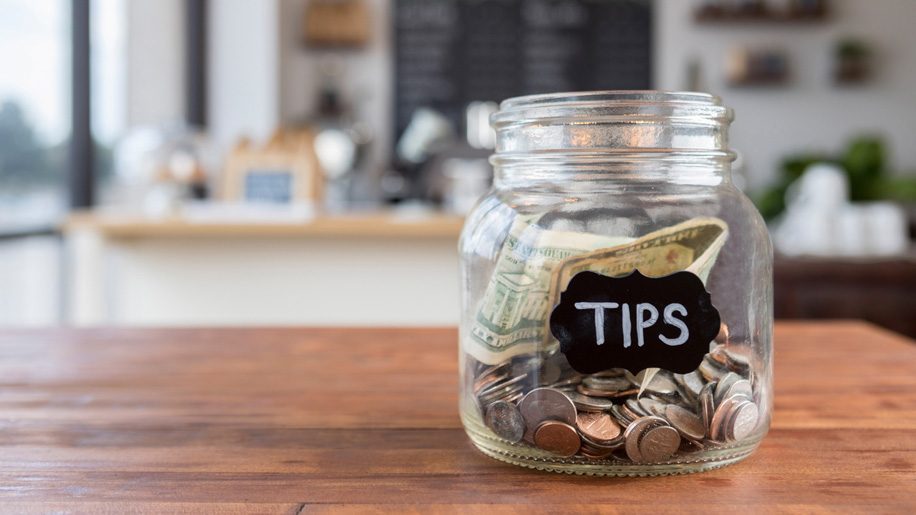
How much, to whom and when? It all depends on where you are, the occasion and personal inclination, says Derek Picot…
As we left the small bistro in St Tropez, my wife asked: “Did you leave a tip?” “No need!” I excitedly explained. “Service compris!” “Well, you should have…” And that sums up the eternal dilemma of whether or not to leave a little extra – service compris or not.
I blame the Americans. Every business traveller will tell you many restaurants in New York add a “guide to tipping” with the “check” (bill) that starts at 18 per cent, and then has the temerity to suggest amounts up to 25 per cent.
Where did all this largesse start? It seems to have begun with the Tudors. When a traveller departed from a private home, it was customary for a gentleman to leave a “vail” for the vassals who had looked after him.
Tips then followed on through the coffee houses of the 17th and 18th centuries and, before we knew it, the trend spread to every caterer in the nation. The British have been tipping ever since.
To tip or not to tip?
So should one feel obliged to tip? Certainly not – but I still feel cheap if I leave a hotel without adding something extra. On top of that, there is the anxiety of not knowing who, exactly, I should tip. Usually my list includes the waiters, concierge porters and doormen at the hotel. But I am unsure about room attendants, maintenance staff, receptionists and the fitness centre.
To make the situation more complex, business travellers will know that there are some countries where tips are not the custom. Japan is the main example – tipping is unknown there. In China it’s also not common. Nor in rural Australia or New Zealand is it the norm, though in the big cities restaurant bills can be rounded up.
France has one solution: there is a taxable 15 per cent charge added to every bill, which is the gratuity that is passed on to staff in the form of an additional wage. Unfortunately, in most restaurants there is no incentive to actually make this clear to diners, and service staff will be delighted if something extra is left on the plate.
In my experience I have found the expectation of a tip more widespread the nearer to the equator you travel. The only exception I discovered was during a trip to Zambia. On the desk in my room was a letter from the general manager explaining that over-generous tipping had created a distortion of earnings in the local village where most of his labour was sourced. He suggested that, as a consequence, no one wanted to work the land, and they all wanted to wait tables. His solution was to suggest that a gratuity should be left with the management to provide support for a community project. This was a laudable proposition.
In the United Kingdom, after several high-profile restaurateurs were exposed for keeping back tips from staff, customers now have to consider how to tackle a till receipt that details a service charge described as “discretionary service charge” (or, more confusingly for overseas visitors, “disc service charge”). The management is required to pass on these funds collected for the staff. Customers may pay all, part or none of the service charge if they don’t wish to.
Service charges by stealth
Beware when you pay by card in the UK. A few establishments present the bill with the service charge added in, then the card reader asks if you would like to add a “gratuity”. If you are not sure whether you have already paid the service charge, ask; if you have, simply decline the extra gratuity.
And when should a tip be offered to get the best service? Experienced tippers in the US donate to the maître d’ on arrival, not at the end of the evening. However, I find customers who advance tip quite galling – all diners should be treated as equals.
So what is a good tip?
If you have already paid a service charge and you feel honour bound to add more, then a further 5 per cent is adequate. Where no charge has been applied, I think 18 per cent in the US, and ten per cent for the rest of the world. A fiver in any currency per bag carried, and something similar for the doorman. Concierges might deserve more than a tenner for extra service that calls for some effort. Everything else is unnecessary, and at your own discretion.
Personally, I can’t remember the last time I was given a really good tip. Certainly not the one I got last month for the races at Doncaster. The horse was so late coming home that the jockey was wearing pyjamas.
Derek Picot has been a hotelier for more than 30 years, and is author of Hotel Reservations.












